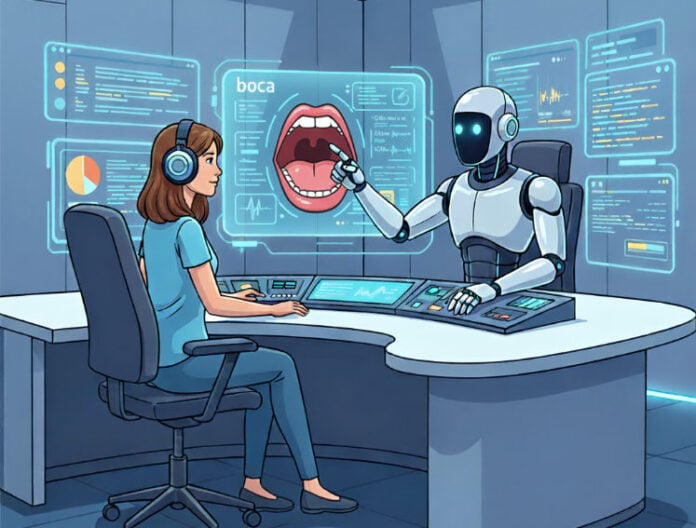I won’t ever say I’m an expert at spotting the work of artificial intelligence (AI) in creative writing, images or videos. Especially as it becomes more sophisticated, I feel fairly certain I won’t be able to.
But as someone who actually spends quite a bit of time writing and reading, I am still usually able to spot what’s written with AI and similar tools. And I’m definitely aware of the limitations of AI when it comes to nuanced, complicated tasks like translation.

For some things, AI is helpful. A friend of mine uses it to practice her Spanish — nice and slow, everything written. I have a friend, an experienced teacher, who uses it to help reduce lesson planning time. Sometimes you can use it as a thesaurus: “What’s a better word for ‘throb’ that doesn’t sound weird and sexual?”
Sure, AI will make up sources that don’t actually exist, but most people don’t seem overly concerned. When it comes to the environmental impact of the gigantic power grid-draining data centers AI must use, though, I fear we’ll only react properly once it’s too late. Or maybe people will think it’s a fair price to pay for all this convenience.
Admittedly, most of my relationship to AI has not been all that positive, and I’m glad that Mexico doesn’t seem to be diving in headfirst into AI as quickly as the U.S. is. As a “service” that none of us voted to have, which, on top of that, is using all of our data to “learn,” I feel pretty defensive.
And none of us are protected from its effects — we’ve all been tossed into the Wild West without seatbelts or helmets. Even AI company leaders admit that AI “might” end up destroying humanity, but they just “have to” move forward.

Do they? Do they have to move forward? I personally heard no booming voice from the sky, and I’ll gladly just go back to using thesaurus.com. Really, it’s fine.
An endless retraining loop
So when I hear people bring up using AI to learn Spanish, I bristle somewhat.
My first bristling instinct is admittedly selfish: Nearly every skill I’ve learned while living in Mexico that can actually keep me surviving in the economy is ripe for the AI picking. I’m still a writer, but writing doesn’t pay the bills. Teaching English did for a while. Translating did for a good while, though all that work has now dried up too.
Currently, I’m an audio description writer (kind of like making subtitles for the blind), a job that I love. But I know that it’s only a matter of time before AI gets good enough to swipe that one away.
How many times can a person be expected to retrain while also juggling all of life’s other requirements? With some predicting that AI will soon be able to do the job of anyone who works in front of a computer, a lot of us might be about to find out.
For now, I’m hanging on as well as I can.
What AI can and can’t do
I keep hearing the same platitude when it comes to jobs: “You won’t be replaced by AI, you’ll be replaced by someone who works with AI.” Cute.
And in the language field, that’s kind of true, I guess? Usually, the “someone who works with AI,” though, is the company itself working with AI so that it doesn’t have to pay anyone to work with you.
As someone who’s been involved in many of these human-to-machine transitions, there are a few things I can say with confidence:
1. AI is not a good transcriber
One of my many professional hats over the years has been as a legal transcription editor. In many courtrooms these days, AI transcription services are being used to get what was said into printed words. And let me tell you, it does not do a good job — not even the professional-grade software that you pay for.
Accents, mumblings, people following the natural cadence of speech that they do all mean that if you want an AI transcript to be legible, you’d better have an experienced editor on hand who can listen closely to all that and write a clean copy for you. And to use those cool services like a translation app or the new AirPods, people will have to speak slowly and clearly in complete sentences to be understood.
Now, if you and the other person don’t speak each other’s languages at all, I suppose it’s better than nothing. Still, it’s not the miracle it’s made out to be, and misunderstandings are likely.

2. AI is a pretty good translator…if it’s all transcribed properly (it’s not)
If you’ve got a well-written text with proper spelling and grammar, most AI software will do a fairly good job translating it. What it won’t do is translate style. Spanish writing, I’ve long said, is the king of the run-on sentence. “Break things up,” I’d advise new translators. “English speakers can’t stay focused reading a sentence that goes on for more than three lines.”
When there’s a dual AI job — transcription and translation — things get stickier. After most of my subtitle translation work dried up, I would occasionally get assignments to “proofread” AI’s translations. Most of the time, it wound up being more work than doing it from scratch would have been — and for far less money. If the transcription was bad, then the translation was bad, and it became quite a bit to untangle.
3. There’s nothing like actually talking to people to learn how to talk to people
For all my grouchiness about AI, the point is not to discourage you from using it as a tool to help with your Spanish learning. Whatever helps you communicate is good, and whatever helps you learn is good. But AI companies are trying to convince us in so many areas that AI is just as good or better than other humans. When it comes to language learning, it’s simply not.
While AI might be able to explain every detailed grammatical rule that you like, it can’t build a relationship with you. It can’t be your friend or tell you about its personal experiences, always intrinsically linked to the culture and language around the tellers.
So if you’re able, use the tools you need, but try to learn the language and make friends the old-fashioned way. It’s worth it.
Sarah DeVries is a writer and translator based in Xalapa, Veracruz. She can be reached through her website, sarahedevries.substack.com.
